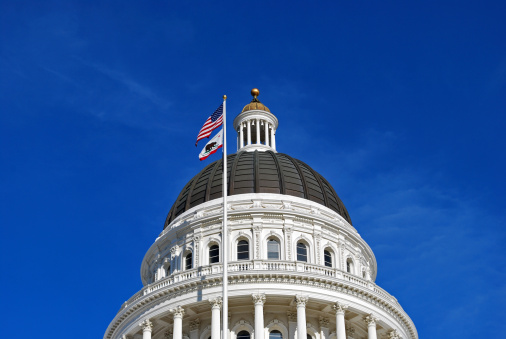
Today, Governor Jerry Brown announced a six-year plan to raise the statewide minimum wage to $15 an hour, just two months after the Long Beach City Council voted to raise the the minimum wage to $15 by 2021. The proposal is expected to be voted upon by the Legislature by the end of the week.
If approved, the measure would cement California as the first state in the U.S. to raise the minimum wage to $15.
At a press conference, the Los Angeles Times noted that Brown called the raise of the minimum wage a “matter of economic justice,” saying “it just makes sense.” He also said he hoped that raising the minimum wage spreads “all across the country.”
Long Beach Mayor Robert Garcia was optimistic about the measure, pointing to Long Beach’s foresight in addressing raising the wage head-on. The measure to increase the wage in Long Beach passed by a 6-2 vote, with Stacy Mungo and Daryl Supernaw dissenting.
“Long Beach has already taken steps to responsibly increase the minimum wage for workers in our city, so this action from Governor Brown is good news for us locally,” said the mayor in a tweet. “This statewide approach also ensures that cities maintain similar wage levels to ensure business competitiveness.”
The statewide measure grants an extra year before the full wage raise is in effect for local businesses, and would raise the statewide minimum wage by 50 cents on January 1 to $10.50 an hour, before raising it to $11 in 2018 and a dollar every year after, up to $15 by January 1, 2022.
Jeremy Harris, Senior Vice President at the Long Beach Area Chamber of Commerce, said that the measure, on its surface, would actually benefit Long Beach businesses by granting them the extra year to raise their wages, creating “an even playing field with Long Beach’s bordering cities that chose not to raise the minimum wage locally.”
However, he stated this is only true “if there is language in the state proposal that prevents local municipalities that have passed a local minimum wage ordinance from further increasing the local wage thus creating once again an uneven playing field.”
He emphasized that the Chamber stands “ready to work with our stakeholders and elected officials on how best to reach an economically viable solution to what has become a very political issue.”
Los Angeles labor leader Rusty Hicks expressed full support for the measure.
“Today’s announcement by Governor Jerry Brown is a great victory for California, coming off the heels of our victories in Southern California,” said Rusty Hicks, executive Secretary-treasurer of the Los Angeles County Federation of Labor, AFL-CIO and the co-convener of the Campaign to Raise the Wage. “It shows that when workers come together, we win. This agreement also shows that the great strength of our labor movement is felt in every corner of our state. It means real gains for millions of underpaid workers who have struggled to provide a decent life for their families.”
California’s move precedes what many expect to be a similar decision for the State of New York, which is currently negotiating a $15 minimum wage raise wage.
These states aren’t the only ones in the country pondering the $15 minimum wage; New Jersey and the District of Columbia are looking at proposals to do so as well. All of the decisions come after Long Beach, Los Angeles, Seattle and San Francisco approved municipal measure to raise the wage to $15.

